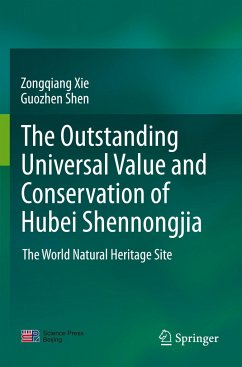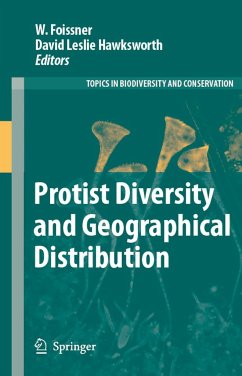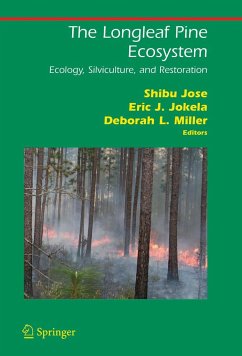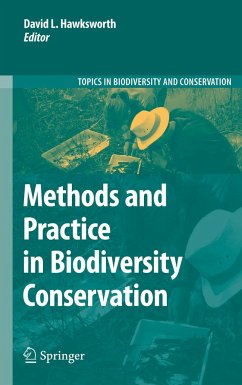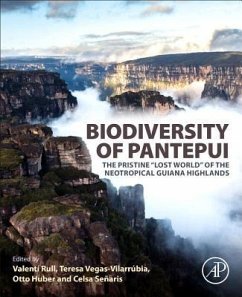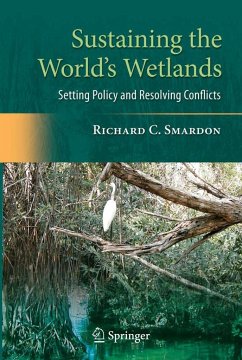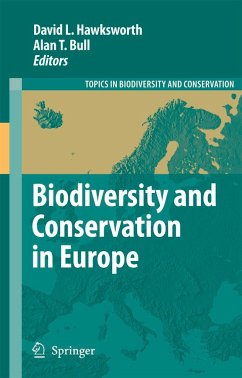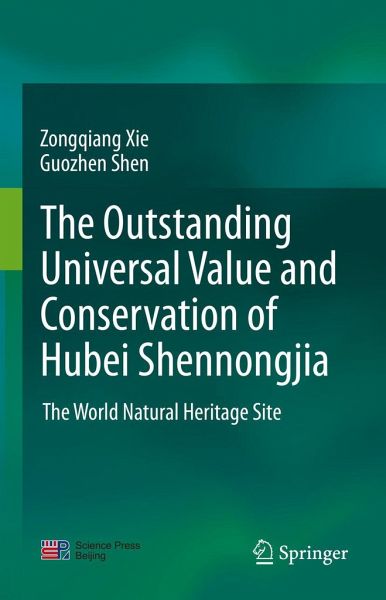
The Outstanding Universal Value and Conservation of Hubei Shennongjia
The World Natural Heritage Site
Versandkostenfrei!
Versandfertig in 6-10 Tagen
106,99 €
inkl. MwSt.
Weitere Ausgaben:

PAYBACK Punkte
53 °P sammeln!
This book owes a great deal to the outstanding universal value of the natural heritage of Hubei Shennongjia, which offers an outstanding example of the ongoing ecological processes occurring in the development of intact subtropical mixed broad-leaved evergreen and deciduous forests in the northern hemisphere. The book demonstrates the value from the typical example of mountain altitudinal biological zones in the Oriental Deciduous Forest Biogeographical Province, and the vital origin location for global temperate flora, harboring the highest concentration of global temperate genera. Moreover, ...
This book owes a great deal to the outstanding universal value of the natural heritage of Hubei Shennongjia, which offers an outstanding example of the ongoing ecological processes occurring in the development of intact subtropical mixed broad-leaved evergreen and deciduous forests in the northern hemisphere. The book demonstrates the value from the typical example of mountain altitudinal biological zones in the Oriental Deciduous Forest Biogeographical Province, and the vital origin location for global temperate flora, harboring the highest concentration of global temperate genera. Moreover, the heritage value in exceptional biodiversity and key habitat for numerous relic, rare, endangered, endemic, and type specimen species are presented. The richness of deciduous woody species in Shennongjia is the highest in the world.



